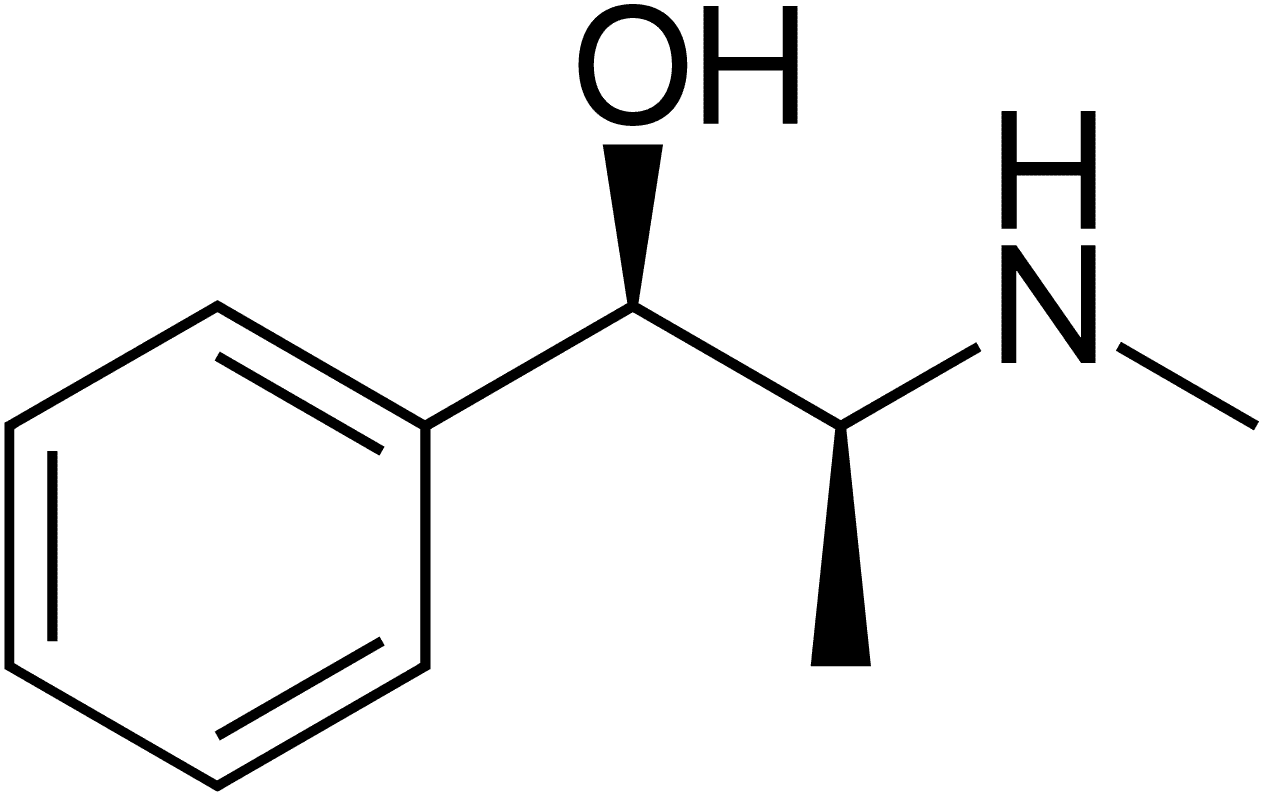Substances
Ephedrine

Ephedrine is a sympathomimetic amine commonly used as a stimulant, concentration aid, decongestant, appetite suppressant, and to treat hypotension associated with anaesthesia. A methamphetamine analogue and commonly used in the production of methamphetamine.
Harm potential
moderately addictive with a high potential for abuse
Source: PsychonautWiki
Dosage
This dosage information is gathered from users and resources for educational purposes only. It is not a recommendation and should be verified with other sources for accuracy.
oral
light: 10-20mg
common: 20-30mg
strong: 30-50mg
Source: PsychonautWiki
View dosage charts in the KnowDrugs app
Effects
- Ephedrine is similar to the endogenous hormone epinephrine and is chemically closely related to the group of amphetamines, and therefore has a similar effect on the body. Ephedrine can increase blood-pressure, drive and performance and also works appetite-inhibiting.
- Even at low doses, palpitations, restlessness, sleep problems, dry mouth and pupil dilation can occur. The higher the dose, the more it can cause tachycardia, arrhythmia and high blood pressure, loss of appetite, insomnia, heavy sweating, nervousness and trembling, and overdoses even lead to confusion and paranoia.
- Frequent ephedra or ephedrine use may result in habituation or tolerance, which requires higher doses to achieve the same effect. At the same time feelings of permanent languor and depression, sleep disturbances (a so-called impulse hangover) can occur. Possible long-term consequences are also: impaired memory and ability to concentrate, irritability, nervousness, aggressive behavior, cardiac arrhythmia, chronic hypertension, bad teeth, liver and kidney damage and mental disorders (paranoia, psychosis, etc.). Prolonged intensive consumption can lead to psychological dependence.
Source: Drugscouts
Interactions
View all interactions in the KnowDrugs app